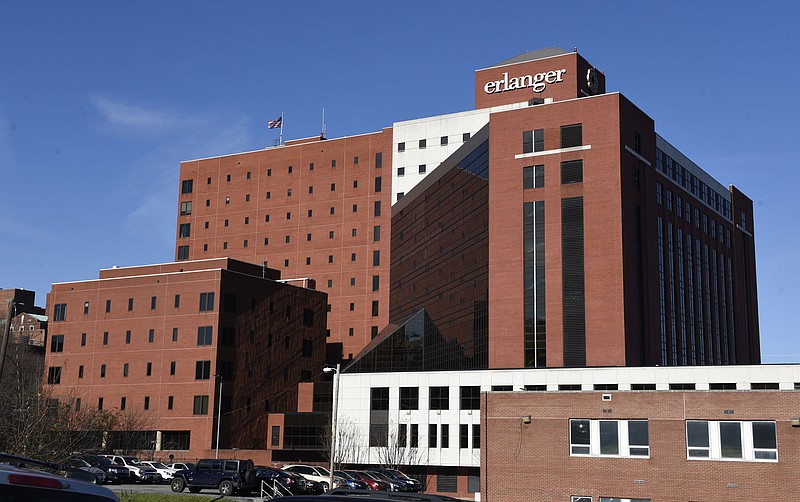The chairman of Erlanger Health System's board of trustees said he is confident the hospital can resolve its conflict with the University of Tennessee College of Medicine over how its teaching program operates.
"A relationship that long has had plenty of ups and downs, and if both partners are willing to meet at the table and talk about it and work on it, I feel very confident that we can climb any mountain," Chairman Jack Studer said Friday.
Control over the physician training program at Erlanger Health System appears to be at the heart of a simmering dispute between the hospital and the university.
The issue first surfaced publicly in November when board members passed a resolution directing Erlanger's executive management to review and enforce the hospital's affiliation agreement with the university, citing UT's noncompliance with parts of the agreement. That resolution stopped short of allowing Erlanger's executives to terminate the agreement without the board's approval.
Specific points of noncompliance were not discussed publicly, and both Erlanger and UT have declined to discuss those issues in the weeks following the meeting.
However, a copy of the hospital's grievances obtained by the Times Free Press lists complaints about residents - doctors in graduate medical training at UT - completing their rotations outside of Erlanger, a longstanding practice that allows them to fulfill their training requirements and enables residency programs to maintain accreditation.
The current affiliation agreement, a 10-year binding agreement signed in August 2014, lists dozens of approved resident rotation sites, including other local hospitals and medical facilities. Other complaints identified by Erlanger do not appear to be specifically addressed in the agreement.
Studer, who noted discussions between Erlanger and UT are ongoing, said he is not in a position to interpret the affiliation agreement.
"That's going to have to be something that we have professionals answering," he said. "It's a contract, legal document, anyone can read it and have an interpretation."
The hospital's decades-long relationship with UT and its teaching programs at the hospital are considered a major asset to Erlanger and the community. UT has 10 residency programs, ranging from emergency medicine and pediatrics to orthopedics and urology. Many of the doctors who complete their training here stay in the Chattanooga area to practice.
The November resolution came as a surprise to many, including Dr. Bruce Shack, dean of the UT College of Medicine, Chattanooga Unit, who at the meeting said it was brought to his attention only hours before. He said there were talks between the university and hospital, but he didn't believe the university was "in substantial noncompliance" with the affiliation agreement.
He also said he was unsure of the resolution's purpose, since there's a conflict resolution procedure built into the affiliation agreement - a process that he said had already begun.
The agreement calls for both sides to resolve disputes reasonably when possible, but if the parties cannot resolve them promptly, a committee consisting of at least three people from both the university and health system has 30 days to resolve the conflict before consulting an independent, third-party mediator.
At the Jan. 25 board meeting, nearly two months since the initial resolution passed, Shack confirmed that conflicts remained unresolved.
Studer told the Times Free Press before the January meeting he didn't know whether a formal mediation process was launched, but "productive" and "positive" communication is happening.
"That's a relationship that needs to be hashed out by the administration of Erlanger and the administration of UT," Studer said. "We were merely trying to provide a reminder to be good partners and work together. To my knowledge, there have been multiple, multiple meetings in the ensuing month."
Steve Schwab, chancellor of the University of Tennessee Health Science Center in Memphis, has met with both Erlanger and UT officials on several occasions, including a recent meeting with numerous members of Erlanger's physician faculty, but declined to comment on the continuing dispute, which comes at a time when incoming residents may be eyeing Chattanooga.
"There's never a great time to have these conversations, but these are important conversations that need to be dealt with," Studer said. "The timing is never perfect for tough stuff, but you got to roll your sleeves up and do the work."
Contact staff writer Elizabeth Fite at efite@timesfreepress.com or 423-757-6673.
